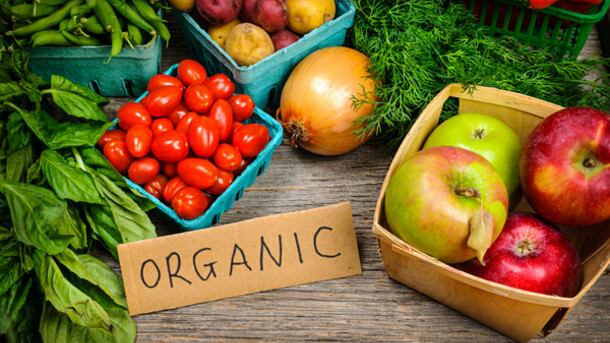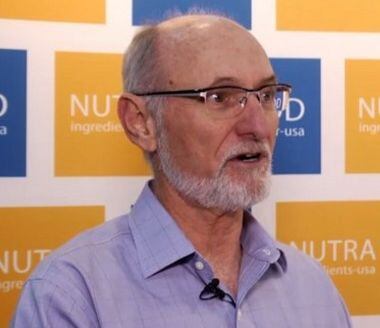The comments – which you can read HERE - are in response to an FDA call to action issued on November 10 inviting views on whether it is appropriate to define ‘natural’ on food labels, and if so, what the definition should be.
The FDA has also asked whether consumers view 'natural' and 'healthy' as ‘synonymous terms,’ and whether shoppers confuse the terms 'natural' and 'organic'.
Down the rabbit hole…
Many of the comments from industry stakeholders were submitted just ahead of the May 10 deadline, so have not yet been published in the docket.
However, what is immediately striking about the comments that are available for public view – mostly from consumers - is how heavily they rely on words such as ‘chemicals,’ ‘artificial’ and ‘processed,’ which are almost as difficult to define as the term ‘natural’ itself.
They also reflect how confused consumers are about what all foods are actually made from, with many commentators arguing that simply prohibiting the term ‘natural’ on products containing ‘chemicals’ would resolve the matter once and for all, an observation that might make food scientists snigger, but one that many food marketers have arguably aggressively fostered.
Dr Dan Fabricant: The FDA should allow the term 'natural' on foods derived from biotechnology
So what do the trade associations have to say?
We've listed some comments below, but one point over which they all appear to agree is the need to keep 'natural' and 'organic' separate, with the Natural Products Association even arguing (in a move that may surprise many consumers) that foods derived from biotech crops should qualify for a 'natural' label.
As CEO Dr Dan Fabricant observes: "If 'natural' became synonymous with non-GMO, there would be no difference between the terms 'natural' and 'organic' [the latter being non-GMO by definition]. If as a result of litigation or state legislation, food manufacturers are precluded from using the term 'natural' on foods from biotechnology, the two categories would become blended, and consumers would not have a distinct choice between 'natural' and 'organic' foods."
However, the American Herbal Products Association takes a different view, and argues that products made from GE ingredients should NOT be described as 'natural,' while it also argues that some manufacturing processes might disqualify some ingredients derived from natural sources from using the term 'natural'.
The Grocery Manufacturers Association (GMA):

"Aspects of sourcing, such as agricultural practices, use of biotech seeds, and animal husbandry should have no bearing on the 'natural' status of an ingredient or food.We believe that this is a key distinction between organic claims, which are based on the use of organic farming, production, and handling methods; and natural claims, which should be based on the natural status of the ingredients used to make the food and post-harvest processing of the ingredients.
"Fortification with mandated nutrients should not affect the ability for a food to be deemed 'natural.'"
The GMA also explores a three-tiered approach: '100% natural/all-natural;' 'Natural'; and 'Made with natural...' Read the GMA's full comments HERE.
The Organic Trade Association (OTA):

"The data demonstrate that many to most consumers incorrectly believe that 'organic' and 'natural' have similar meaning...
"The most workable approach for FDA to take is to clarify through guidance its preference that, except where already provided for in FDA regulations (e.g. natural flavors), the term 'natural' should not be used on food labels. Instead we urge FDA to focus its efforts on identifying and defining the ‘single attribute’ claims that may be used on food labels (no artificial colors or flavors).
"Should FDA define 'natural,' it should proceed through program establishment and rulemaking and ensure that processes are set up that include verification and enforcement mechanisms, including third-party certification..." Read the OTA's full comments HERE.
The Natural Products Association (NPA):

"NPA believes that any definition of ‘natural’ ... should draw heavily upon USDA’s definition and the regulatory guidance framework from FSIS in order to harmonize the term across all agencies...
"Formalizing the definition of 'natural' will not only alleviate confusion, but it will foster innovative ingredients.
"NPA requests the FDA... to allow the term 'natural” on foods derived from biotechnology... If 'natural' became synonymous with non-GMO, there would be no difference between the terms 'natural' and 'organic' [the latter being non-GMO by definition].
"To best serve consumers, 'natural' should remain distinct from 'organic.' " Read the NPA's full comments HERE.
The Council for Responsible Nutrition (CRN):
"To foster transparency and flexibility, a definition for 'natural' should include a tiered system for labeling different categories of natural products. For example, USDA Organic products can bear claims in four defined categories: 100% Organic; Organic; Made With Organic; or identification of organic ingredients in the ingredients list... A similar scheme should be established for natural food products."
Download the CRN's full comments HERE.
The American Bakers Association (ABA)

"The definition should be consistent with agency precedent, such as FDA’s definition of 'natural flavors' and .... should not include a 'minimally processed' criterion. Although a 'minimally processed” criterion may be appropriate for raw meat and poultry products, it is not appropriate for FDA-regulated products.
"The definition should be clear and objective, and readily capable of verification. FDA should educate consumers about the definition, so that consumers will have a more uniform and appropriate expectation about products bearing 'natural' claims.
"To help avoid confusion, FDA should exclude processing aids not required to be declared in the ingredient declaration from an evaluation of “natural” status."
Read the ABA's full comments HERE.
The Independent Bakers Association
"In its definition of 'natural,' we urge FDA to follow its current internal policy definition, draw consistency with the definition used by the Food Safety Inspection Service and consider ingredients and processing. We also urge FDA not to include any claims of health or nutritional benefits in its definition without extensive government-backed research behind those claims.
"The FSIS 'natural claims' policy also directs that all products claiming to be natural should be accompanied by a brief statement which explains what is meant by the term... We urge FDA to follow this example in its own policy."
The American Herbal Products Association (AHPA)

"A regulatory definition would require the food industry to bring their claims into alignment with this definition which should cause the number of lawsuits to be reduced substantially over time...
The FDA... "should prohibit use of the term 'natural' on labeling of raw agricultural commodities from crops produced with genetic engineering (GE) or mutagenesis and on multi-ingredient products that include any GE- or mutagenesis-derived ingredients."
Read the AHPA's full comments HERE.
The consumer perspective

Here is a sample of some of the comments from consumers:
“Food made by God is natural. Food made by a chemical company in the lab is not natural.” Tracy Molyneux
“If the human food product comes in a box or packet and any of the ingredients have been processed, the term "natural" should never be allowed.” Michael Levine
“Please consider sweeteners like stevia, aspartame, etc as NOT under the natural label.”Trish Telesco
“The term natural means nothing and it should not be allowed on packaging at all… All food is chemical, and all food preparation is chemistry. The term natural is marketing.” Benjamin McElfresh
“The term "natural" is meaningless for the purposes of food labeling. It gives the impression that this food is somehow healthy or good without providing any actual information about the ingredients or methods of production. It is so open to misinterpretation that it could mean anything at all. It provides a halo for food producers without providing any actual protection or valuable information to consumers. To this extent, it is often downright misleading. It should not be used on any food labels whatsoever.” Angela Bowman
“I have hope that the FDA will narrowly define ‘natural’ as I have, but do not have the trust that the term will be defined this way, as the big food conglomerates will most likely lobby the FDA to water it down so that ‘natural’ doesn't really mean anything, just as it doesn't mean anything today.” John B
Annie’s president: ‘Natural’ doesn’t mean anything
Speaking to FoodNavigator-USA at the Expo West show in March, Annie’s president Jon Foraker predicted that the term ‘natural’ would fade in importance as organic continued to gather pace, adding: “At Annie’s we haven’t even used the term ‘natural’ on labels since the early 2000s because it doesn’t mean anything…

What do food & beverage CEOs think 'natural' means? Check out our recent industry vox pop
"I think that the natural products industry will move to organic. That’s where it’s going and it’s what consumers want.”
Food law attorneys, meanwhile, say it’s by no means certain that the FDA's probe into ‘natural’ will even result in a new legal definition, with Ivan Wasserman, a partner at Manatt, Phelps & Phillips, LLP recently predicting that the whole 'what is natural?' question could ultimately end up in the 'too difficult' box.
He added: "This is truly a no-win situation for the FDA."
Click HERE to read all of the comments submitted to the FDA.
